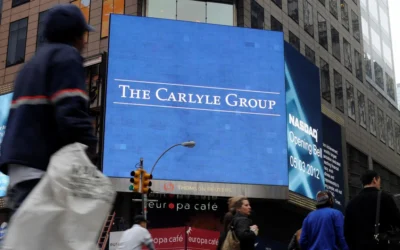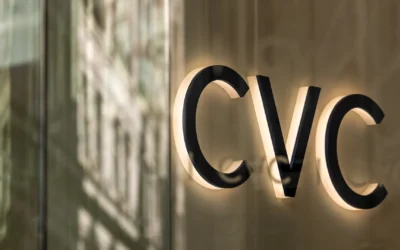Warner Music has acquired David Bowie’s songbook for about $250m, the latest mega-deal in a frenzy for music copyrights that has attracted billions of dollars from investors.
KKR and Blackstone have committed billions of dollars to buying music rights, viewing them as credit-like assets that provide a predictable yield in a low interest rate environment.
The acquisition spans the publishing rights to Bowie’s 26 studio albums over his six-decade career, including songs such as ‘Life on Mars?’ and ‘Let’s Dance’.
The deal is a coup for Warner, as the traditional music companies must compete with private equity giants and specialist investors aiming to gobble up music copyrights.
Get the week’s top news delivered directly to your inbox – Sign up for our newsletter
Financial terms were not disclosed, but Warner paid about $250m for the catalogue, according to people familiar with the matter. The Financial Times reported in November that the companies were in talks.
“We are truly gratified that David Bowie’s body of music will now be in the capable hands of Warner Chappell Music Publishing,” said Allen Grubman, the lawyer representing the David Bowie estate. Bowie died in 2016 and left his estate to his second wife Iman and two children.
In the past year, legendary musicians such as Bruce Springsteen, Stevie Nicks and Bob Dylan have sold their songwriting catalogues for nine-figure sums, cashing in on the booming value of their work as the music industry undergoes a renaissance. Springsteen last month agreed to sell his catalogue to Sony Music for a reported $550m.
These catalogues generate revenue for decades as songs continue to be streamed, played on the radio or used in films and advertisements.
Songs have two copyrights — one for the songwriting and one for the actual recording, or master copy. Both of these copyrights have soared in value as streaming revived the industry after a decade-long collapse due to piracy.
Bowie’s estate last year struck a long-term licensing deal with Warner Music for his recorded music catalogue.
Warner, the record label behind Dua Lipa and Cardi B, in December raised $535m in debt to support acquisitions.
For large music groups such as Warner, owning big catalogues helps them justify their value — Warner’s market capitalisation stands at $22bn — and gain leverage over streaming services and social media companies that wish to use or license their music.
Guy Moot, chief executive of Warner Chappell, the company’s publishing arm, said: “We are looking forward to tending [Bowie’s] unparalleled body of songs with passion and care as we strive to build on the legacy of this most extraordinary human being.”
Source: Financial Times
Can’t stop reading? Read more
Carlyle edges ahead in €6bn pursuit of BASF’s coatings division
Carlyle edges ahead in €6bn pursuit of BASF’s coatings division Carlyle Group has emerged as the...
CVC expands US footprint with $1.75bn acquisition of data-driven insurer Bamboo
CVC expands US footprint with $1.75bn acquisition of data-driven insurer Bamboo CVC Capital...
Bain Capital closes $14bn flagship buyout fund, topping $10bn target
Bain Capital closes $14bn flagship buyout fund, topping $10bn target Bain Capital has completed...




